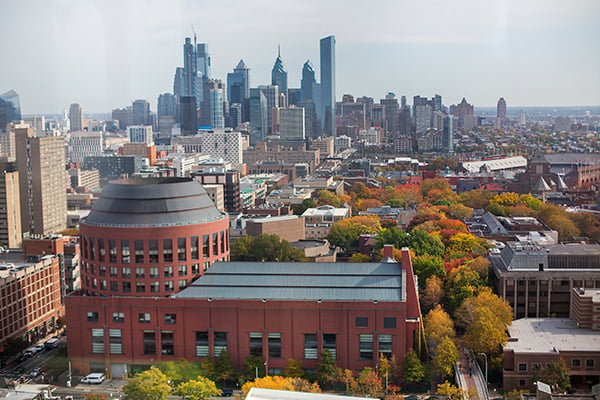If your sights set on business school and are you trying to decide which MBA programs to apply to, you best start with understanding your chances of acceptance to top programs. You might be wondering where you’ll likely be accepted and which is the best program you can get into with your profile. To help answer your questions, we’ve put together some fast facts covering key admission factors to help you determine your odds of getting accepted into the Wharton MBA Program.
If you’re wondering how difficult it is to get into Wharton, then you’ve come to the right place. On this page, we’ll give you a quick overview of what it takes to get into the Wharton School of the University of Pennsylvania and help you understand whether your profile is a good fit for the Wharton MBA program.
(Note: This page highlights Wharton’s full-time MBA program. The other program option at Wharton is the Executive MBA Program for Working Professionals.)

| Acceptance Rate | 21% |
| Class Size | 888 |
| Average GMAT Focus | 676 |
| Average GMAT Legacy | 735 |
| Average GRE | 163Q / 162V |
| Average GPA | 3.7 |
Sources: The Wharton School, class of 2027 data & U.S. News business school data
The top undergraduate majors represented in Wharton’s MBA program are Humanities (38%), Business (34%), and STEM (28%).
The undergraduate universities most represented in Wharton’s MBA class profile are:
If your undergraduate college is listed above, that means that Wharton has accepted many applicants with your education background in the past. It also shows that candidates who have gone to these schools have considered applying to Wharton, and it is one indication that the business school has found students who have completed their undergraduate education at these universities to be successful.
Wharton’s top pre-MBA industries are consulting (24%), pe/vc (12%), technology (10%), and nonprofit/government (10%).
Looking at the pre-MBA industries shows you whether your profile is well-represented at Wharton. Don’t worry if you don’t see your industry on the list—there might not be many students enrolled from your industry simply because many candidates didn’t apply to the program in the first place. The same goes for the pre-MBA employers data we’ve provided below.
The pre-MBA companies that are most represented in the Wharton MBA class are:
Wharton look for candidates who are innovative, collaborative, globally aware, and a giving, high-impact leader. One of the most important determinants of your success at Wharton is not your test scores or your extracurricular achievements, but who you are as a whole person and an emerging leader.
Interested in finding out more about Wharton? Visit our Wharton overview page.
Explore Menlo Coaching’s MBA admissions consulting services to enhance your chances of success in the competitive Wharton MBA program admissions process.